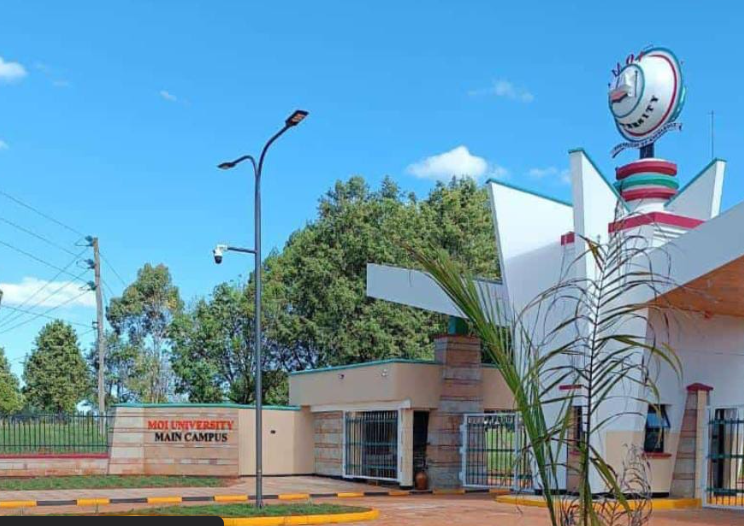The Moi University Council has blamed the government following the financial crisis facing the institution.
In a statement on Tuesday, November 26, 2024, the Moi University Council Chairperson Humphrey Kimani Njuguna also blamed the new funding model for the woes in the institution which is on its knees.
According to Njuguna, the institution has not been able to raise enough revenue for the past twenty years, partially due to the reduction of government grants.
“The major challenge at Moi University is inadequate finances because the institution for the past decade or so, has not been able to raise revenues sufficient to meet the expenditures. This inability to raise adequate revenues is driven principally by two factors. First, there has been a progressive reduction in government grants through guaranteed funding by way of capitation. Since the introduction of the differentiated unit cost model of University funding, the government has progressively reduced the capitation grants from an anticipated 80% of the cost of an academic program to about 38% at the time of its replacement,” Njuguna stated.
“The 42% gap in revenue was supposed to be met through internal revenues. The University relied on the privately-sponsored student program to meet this gap. The 2016 KCSE reforms eliminated this revenue stream, as all students who matriculated received government sponsorship.”
Njuguna also says that Moi University has also witnessed a significant decline in student enrolment in its undergraduate programs that form the bulk of its revenue base.
He says for the 2024/2025 academic year, about 6,000 first-year students were placed in Moi University, as against a declared capacity of over 14,000 students, and over 47,000 applicants to the university’s undergraduate programs.
Moi University capitation
Njuguna says Moi University has heavily relied on government capitation to pay salaries, which has been reduced from Ksh200 million to Ksh89 million per month.
“The 2023/24 monthly capitation was Ksh202 million and formed the bulk of funds that are used to meet the monthly payroll costs of Ksh370 million, as the University implemented the 2017/2021 CBA on a horizontal basis upon advice from the Salaries and Remuneration Commission. When the Employment and Labour Relations Court ruled that the CBA should be implemented on a diagonal basis, the monthly payroll shot to Ksh403 million,” he explains.
“However, for the 2024/2025 financial year that started in July 2024, the monthly capitation was reduced to Ksh89 million. This left a monthly payroll gap of Ksh314 million which has been difficult to fill.”
He adds that the court directive to implement the 2017/2021 payroll on a diagonal basis instantly
created salary arrears that accumulated to about Ksh1.2 billion that remain unresolved.
“The University has received assurances from the Ministry of Education, the National Treasury, the Executive Office of the President, local leadership, and the National Assembly Committee on Education that an initial financial support of about Ksh3.5 billion will be availed to meet the gap and other pressing challenges,” he adds.
“The payroll gap arising from a mismatch in revenues and expenditure created delays in salary payment and remittance of statutory and third-party deductions. Contrary to the commonly held assertion that the University deducted and failed to remit the funds, the reality is that the revenues were such that they were only sufficient to meet the net payroll costs. Funds for statutory and third-party deductions were simply not there to allow for any remittance.”
The university declared over Ksh7 Billion of accumulated arrears from the year 2015 as pending bills to the Pending Bills Verification Committee of the National Treasury as directed by the government for possible final settlement.
Njuguna says the reports suggesting that over Ksh2.2 billion was squandered in capital development projects are inaccurate and misleading.
“The quoted amount is the total cost of the projects under scrutiny, some of which have not even kicked off, and some of which the requisite funding from the government has not been disbursed. Some of these projects are donor-funded and implemented with a robust financing framework that includes external audits,” Njuguna says.










